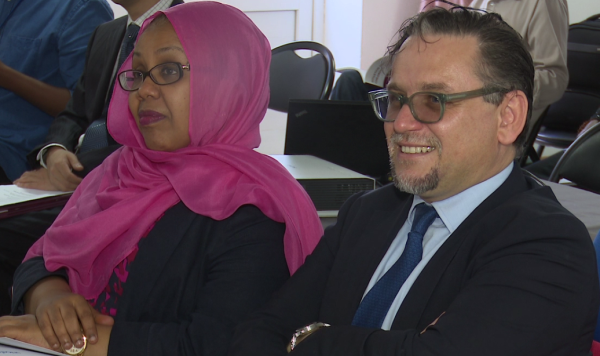Protection of children in Somalia must form government’s central agenda- UN

About one per cent of children in Somalia are ‘double orphans’ with the incidence rates gradually rising over the recent decades, a UN report has noted strongly calling for government action to protect children.
In a report released Monday in Mogadishu, the children’s agency UNICEF said the number of children living without both biological parents in Somalia is raising exposing children to a myriad of risks.
The report also notes 9% of children in households live as single orphans meaning one of the parents is dead; with Somaliland and Puntland recording higher incidences. Out of this, the report notes 7 % of dead parents are fathers while mothers account for 2%.
Armed groups
UNICEF also warns more and more children are at a risk of being recruited to armed groups while others exposed to child labour. Others, the report notes find themselves in groups migrating out of the country through the high seas with risks such as trafficking, violence and exploitation afflicting them while others die as a result of failed sea crossings.
The UN body observes the lack of a legal or policy framework for birth registration in Somalia makes it the more difficult to account for and provide targeted support for children.
Female Genital Mutilation also remains a notable problem afflicting children and girls in Somalia with the report noting upwards of 98% of women aged 15 and 49 have undergone FGM. Tied to this is forced, child and early marriages with one in ten marriages occurring before the girl is 15 years old while half before they are 18.
FGM
Speaking during the launch, Women and Human Rights Development minister Zahra Samatar said the government was keen on ensuring zero cases of recruitment of children into armed conflict and exposure to female genital mutilation. But she noted the eradication of FGM does not start and end with adoption of a policy or law observing there has been significant resistance especially from religious leaders.
“It is not religion but retrogressive cultural practices holding us back. FGM is not a religious issue but a cultural one so we need to engage the more with our religious leaders for them to understand we are not against any religious practice but a tradition which has denied our girls a decent life,” said Samatar.
UNDP country director, George Conway called for the integration of children’s issues in all government policies to ensure children form the government’s central agenda.
“As Somalia heads towards a new era of nation building and development, the interest of children especially the most vulnerable ones should and must be at the centre of everything we do,” said Conway.